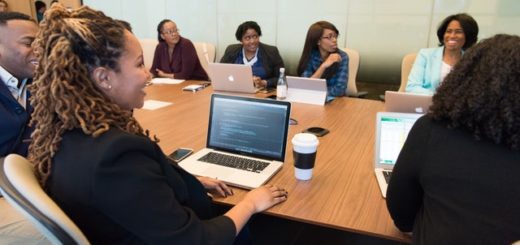Terms of Reference- A Consultancy to conduct Baseline Evaluation for Safety for Children and their Rights Online (SCROL) Programme
Intervention Details
Title: Safety for Children and their Rights Online (SCROL) Programme
Goal: All children (regardless of gender, sexual orientation, class, religion, ethnicity, and abilities) are protected from Online Child Sexual Exploitation (OCSE) in a safe family and community environment
Outcomes
- Children active and able to report cases, parents are active and monitor children online and communities acknowledge children’s agency and hold duty bearers accountable
- Local and national governments address the gaps in the OCSE legislation, are responsive to children and community needs in combating OCSE and victim care and are held accountable by regional and international bodies
- Law enforcement agencies nationally operate in a coordinated manner, are better equipped with appropriate forensic tools and resources to effectively investigate OCSE
- Social media and tech companies and service providers in travel and Tourism sector are active participants in preventing OCSE
Location: Kenya
Period: 01 0ctober 2022 to 30th September 2025
Beneficiaries: Children (9 to 18 years)
Implementing partner (s): Childline Kenya
Background
Terre des Hommes Netherlands (TdH NL) is an international non-governmental organization committed to stopping child exploitation. Our mission is to protect children by preventing and stopping child exploitation, and by empowering children to make their voices count. Our vision is that children can flourish in a world free of all forms of exploitation.
Our vision and mission are inspired and guided by international human rights instruments and standards, in particular the United Nations Convention on the Rights of the Child, the Council of Europe’s Lanzarote Convention, the International Labour Organization Conventions and aligned with achievement of the SDGs, in particular Goals 5, 8 and 16.
In 2022, Terre des Hommes Netherlands launched its 2023-2030 Listen up! Strategy with the aim of creating systemic change that addresses the root causes of child exploitation. We will achieve this by empowering children and their communities, connecting them with those who have power to enact change, engaging in lobby & advocacy campaigns, working with partners to build resilience of children, families and communities and utilizing our knowledge and expertise to co-create sustainable, evidence-based solutions.
On the African continent, TdH NL works in Kenya, Uganda, Tanzania, Ethiopia and Madagascar. In these countries, TdH NL develops and implements programs in close collaboration with local partner organizations. In Kenya, TdH NL programmes are implemented in Central, Rift Valley, Coastal, Western and Northern regions of Kenya where we work with communities, government, private sector, civil society organizations and children themselves, at the centre, to address systemic and structural drivers that expose children to exploitation.
About the SCROL Programme
Online Child Sexual Exploitation (OCSE) includes “all acts of a sexually exploitative nature carried out against a child that have, at some stage, a connection to the online environment”. OCSE and other forms of child exploitation are interwoven and often occur together.
OCSE has surged globally in the wake of the Covid-19 pandemic. A recent survey of the law enforcement officials in 39 countries, revealed that 68% reported an increase in OCSE as a result of school closures and lockdowns (NetClean, 2021, and Economist Impact and WeProtect Global Alliance, 2022). In a global survey, 54% of young people reported having experienced online sexual harms before they were 18 years old. Another multinational survey reported an increase in online grooming, sexual extortion, live-streamed CSAM and self-generated CSAM (Interpol, 2022).
The goal of the SCROL programme is to contribute to the reduction of online facilitated forms of sexual exploitation of children at national levels in Cambodia, Kenya, Nepal and The Philippines and internationally.
In this programme, TdH NL will collaborate with six local partners to address OCSE in four diverse countries that are undergoing rapid changes in their social, economic and demographic development. Various studies indicate the prevalence of OCSE to be high:
- In Nepal 13% children (18.58% boys and 6.88% girls) experienced live streaming of sexual abuse and exploitation, indicating that many more children are likely to have been groomed and experienced other forms of OCSE. (ChildSafeNet and ECPAT Luxembourg, 2020)
- In the Philippines, 1 in 5 children are victims of different forms of sexual abuse and exploitation. (UNICEF, 2016)
- In Cambodia, 60% of child respondents sampled shared examples of OCSE (Terre des Hommes Netherlands and Royal Government of Cambodia, 2019)
- In Kenya, programme evaluations have reported that up to 40% of children surveyed had experienced SEC. TdH NL (2018)
The Safety for Children and their Rights OnLine (SCROL) programme, was co-designed by TdH NL country teams and local partner organisations in 2022. The voices of children in the four countries of implementation also informed the design. SCROL aims to create a safe environment for children by addressing the following elements: poor access to safe reporting mechanisms and adequate referrals, low capacity of law enforcement agencies, lack of delivery by the duty bearers, inadequate knowledge and responses at the community levels and a negligent private sector.
Purpose of the Consultancy
Terre des Hommes Netherlands intends to engage the services of a professional to conduct a baseline evaluation of the SCROL programme. This will be done through desk review of existing data and a knowledge, attitude and practice (KAP) survey to understand the baseline knowledge, attitudes and behaviours of the different programme social actors.
The scope of the survey will be in Nairobi, Kisumu and Kilifi Counties.
Objectives for baseline evaluation
The purpose of this baseline assignment is to assess, measure, and determine the baseline values relating to the project result framework. The baseline study report will be used as a measurement to monitor the project progress against the set indicators over the course of the project implementation.
Specific objectives:
- To conduct analysis of the knowledge, attitudes and practices (KAP) in relation to OCSE by different actors (Government, Law enforcement agencies, private sector, internet service providers, CSOs, children, caregivers)
- To establish the level of response to preventing OCSE among different actors (Government, Law enforcement agencies, private sector, internet service providers, CSOs, children, caregivers)
- To provide recommendations for the effective implementation or adaptation of planned project activities to achieve targets.
Baseline data will be collected for the project Output/ Outcome/ Objective Indicators below:
Description/Indicator/Suggested methodology
Programme goal:
All children (regardless of gender, sexual orientation, class, religion, ethnicity, and abilities) are protected from Online Child Sexual Exploitation (OCSE) in a safe family and community environment
Descriptions of ways in which different stakeholders are protecting children against OCSE. (qualitative)
% of actors (specified) with knowledge on OCSE prevention and identification
% of actors (specified) with improved OCSE behaviour / attitudes
Collection of primary data:
Focus group Discussions and / or Key informant interviews
Knowledge, Attitudes and Practices Survey
Outcome 1:
Children are active and able to report cases, parents actively engage with children, communities acknowledge children’s agency and hold duty bearers accountable
1. Number OCSE cases reported
2. Number of government policies, plans and budgets monitored by CBOs
3. Number of established mechanisms for child participation in legal, political and civil OCSE processes
4. Number of CBOs referring cases to appropriate service providers including referral for psychosocial counselling.
5. The extent to which communities and families facilitate child participation in legal, political and civil OCSE processes (qualitative)
6. Number of CBOs meeting regularly with children to hear their voices and facilitate their participation in prevention of OCSE.
Survey with CBOs who have available secondary data
Focus Groups discussion of other group activities with children and families, in reference to child participation model i.e. Hart’s ladder
Outcome 2:
Banks and financial institutions, social media and tech companies and service providers in travel and tourism sector actively engage in preventing SEC
Number and % of social media and tech companies and service providers in travel and tourism sector implementing policies and procedures for keeping children safe from SEC
Key informant interviews or online survey with shortlist of private sector stakeholders
Outcome 3:
Law enforcement agencies nationally and internationally operate in a coordinated manner, are better equipped with appropriate child-friendly tools and resources to effectively engage with children and address and respond to OCSE
Number of LEAs adopting child friendly and gender responsive protocols
Semi-structured surveys with service providers and service users (i.e. children and families) in project target area
Outcome 4:
Local and national governments address the gaps in the OCSE legislation, are responsive to children and communities’ needs in combating OCSE and victim care and are held accountable by regional and international bodies
Number of laws, policies and other legal instruments blocked, adopted or improved to address, stop and prevent OCSE
Note: Definitions of the indicators listed above will be provided by TdH NL.
Scope of work
The evaluator will be required to undertake the following specific tasks:
- Conduct a desk review of the secondary data available from TdH NL and local implementing partners, on the basis of past projects.
- For indicators for which there is no or insufficient secondary data is available, the evaluator will be expected to design tools and pilot tools for the collection of quantitative and qualitative data
- Analyze available secondary data related to project objectives
- Design methods that allow for valid measure of the programme’s targeted populations and primary data collection, with the support from project teams
- Analyze and interpret data to develop a comprehensive baseline report that gives comprehensive baseline values for the programme’s result framework.
- Share key findings and insights with TdH NL Kenya Country office through consultations
Timeline:
This period of time to be considered for this evaluation is 3rd January 2023 to 23rd of February 2023. The estimated duration of the assignment is fifty (50) days of work maximum. The draft report will be expected on or before 28th of January and Final report on or before 23rd February 2023
Geographic scope:
The baseline evaluation will be conducted in 3 project sites namely; Kilifi, Kisumu and Nairobi.
Deliverables and Timeline
In accordance with the timetable, the evaluator (s) will produce and/or provide to TdH NL the following:
- Inception report including work plan, final data collection tools in English and local language (template of the report will be provided)
- Training materials for data collectors including data collection and quality assurance mechanisms/ instruction/ guidelines/ protocol (“Child safeguarding and ethical evaluation” presentation template will be provided by TdH NL)
- Online data collection forms in KOBO or other effective mobile data collection applications if used
- Final completed Baseline Evaluation Report in English addressing all comments/ feedbacks from TdH NL and/partners and including a clear set of actionable recommendations (template of the report will be provided)
- Final comprehensive slide presentation of the baseline evaluation results
- All completed questionnaires if hard copies are used
- Written informed consent with respondents and photos if any
- Raw data:
- Raw quantitative data
- Raw qualitative data (transcript, data entry in Excel) if exist
- Final clean data used for data analysis
- Final clean dataset used for data analysis in software program data analysis such as SPSS/ STATA… and syntax for data preparation and analysis if used.
- Final data analysis outputs (in table, graph…) that used for report and slide presentation (including data analysis by indicators)
In accordance with the timetable, the evaluator (s) will also:
- Lead the inception meeting to discuss project details, the goal of the evaluation and to receive from the project team all important information and documents needed to perform the evaluation work.
- Provide training to data collection team whenever relevant
- Lead a validation workshop with TdH NL staff and partners to discuss findings
- Provide presentation of the findings in the dissemination workshop.
TdH NL will oversee the process and maintain responsibility for accountability and guidance throughout all phases of execution, and approval of all deliverables.
The deadline for this assignment is 27th February 2023.
Evaluator (s) Competencies, Experience and Skill requirements
The evaluator engaged to undertake the assignment must fulfil the following requirements:
Required
- Minimum 6 years of work experience of conducting projects evaluations, including baselines
- Expertise in Child Protection and child protection mechanisms at all levels
- Outstanding facilitation skills to communicate with project and partner teams in a multicultural environment
- Strong understanding and ability to mainstream TdH NL’s cross-cutting issues i.e. Child Participation, Gender and intersectionality, Inclusion of Children with Disabilities and Standards of alternative care
- Excellent analytical and report writing skills
Desirable
- Previous experience of engagement with law enforcement officials
- Previous experience / Strong knowledge related to Online Child Sexual Exploitation
- Expertise in participatory data collection methods
- Knowledge of local language
Budget
Financial proposal has to be indicated all-inclusive costs for conducting the end evaluation.
Final report format
The Final report shall include an Executive Summary of findings and respond to all the objectives mentioned above and measure all indicators listed in section 3. The report should not exceed 40 pages.
CVs of evaluation team members, raw primary data, summary of all primary and secondary data must be added as annexes to the report.
TdH NL will provide the baseline evaluation reporting template.
Management and supervision
The evaluator (s) will work in close consultation with the Country Manager and Programme Officer for the coordination of the agreed activities.
Monitoring, Evaluation, Research and Learning Officer
Terre des Hommes Netherlands, Kenya County Office
Riverside Lane West,
Nairobi, Kenya
Email address: l.mutuku@tdh.nl
Programme Officer
Terre des Hommes Netherlands, Kenya County Office
Riverside Lane West,
Nairobi, Kenya
Email address: c.parmet@tdh.nl
Child safeguarding
The consultant shall sign and abide by Terre des Hommes Netherlands Child Safeguarding Policy and its related procedures. Terre des Hommes Netherlands is committed to keeping children safe and considers child abuse unacceptable under all circumstances. We therefore implement child safeguarding measures as part of our selection and recruitment process.
How to apply
Qualified and interested applicants to submit Technical and Financial proposals electronically in PDF formats, addressed to “The Selection Committee”, with subject line clearly marked Baseline Evaluation for SCROL Programme via email on or before 16th December 2022 at 1700 hrs. (EAT) to: recruitment.africa@tdh.nl with the aim to select the evaluator by 20 December 2022 and start the assignment by 3 January 2023.
All applications should include the following:
- Technical proposal (max. 8 pages) outlining their motivation for the application, the methodological approach on how to conduct the assignment, and the resources required (documents, survey questions, FGD and KII checklists, etc.) The Technical Proposal MUST include an evaluation matrix summarizing the evaluation plan
- A proposed activities schedule/ work plan with a time frame.
- Financial proposal in Kenyan shillings (KES) detailing evaluators’ itemized fees, data collection, logistical and administrative costs (this should be inclusive).
- A copy of the CV of the evaluator(s) who will undertake the endline evaluation.
- One recent copy of similar evaluation reports conducted by the applicant where possible and/or a recommendation letter from an NGO who the consultant has worked before.
Note that due to the expected large response only shortlisted applicants will be contacted.








